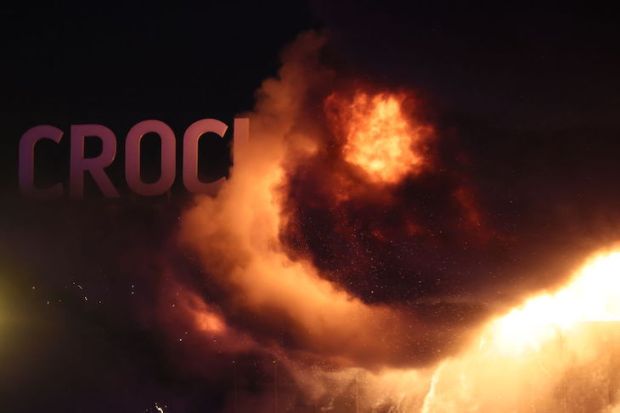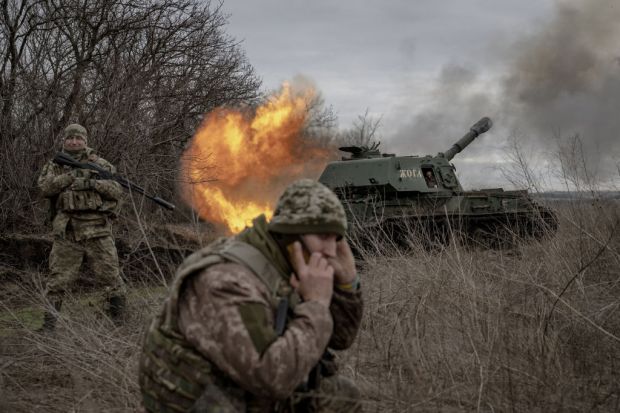A joke is doing the rounds in the Czech Republic that the world’s highest Covid mortality rate can, in actual fact, be found in the Czech Ministry of Health. Yesterday, the Czech health minister Jan Blatný was dismissed, the nation’s third ‘Covid Health Minister’ since the pandemic began. Both his predecessors were sacked by Prime Minister Andrej Babiš in the autumn of 2020.
Rumours of Blatný’s departure had been in the wind for weeks. But his fall from favour seems to have little to do with the Czech Republic’s inability to contain the spread of Covid-19, and far more to do with the ongoing controversy over whether the country will join regional allies Slovakia and Hungary in buying the Russian Sputnik V vaccine.
Blatný was engaged in a continuous tussle with the Czech Republic’s Eurosceptic, pro-Russia and pro-China President Miloš Zeman over the potential procurement of Sputnik V. The outgoing health minister represented the views of a large proportion of Czech epidemiologists and health experts who are worried about the use of non-EMA approved vaccines. Leading Czech health figures have expressed particular concern over Russian production and approval processes for the Sputnik V jab.
Given such concerns, Zeman’s brusque insistence about the safety of the Russian vaccine – declaring it far safer than the AstraZeneca vaccine and decrying an ‘ideological hysteria’ about the Russian jab – caused a major split in government about the nation’s vaccine programme.
Significantly, Blatný’s replacement as Minister of Health, Petr Arenberger, has talked positively about the possible use of Sputnik V. A former director of a Prague hospital, Arenberger has advocated offering Sputnik V on an initial opt-in basis, as part of nationwide clinical trials.
His appointment appears to be part of Zeman’s victory over Blatný in the Czech Sputnik V debate. When welcoming Arenberger as the new health minister, Zeman criticised Blatný for having blocked the purchase of eastern vaccines, and claimed that anyone who continues to do so ‘is responsible for those who die due to a lack of vaccines’. Prime Minister Andrej Babiš and Arenberger have downplayed the possibility that Sputnik vaccines will be used without EMA approval, but the Russian vaccine is now unmistakably gaining traction in Central Europe, with Bavarian Prime Minister Markus Söder announcing a preliminary agreement for the purchase of Sputnik V doses and an Austrian purchase of Sputnik jabs imminent.
Blatný’s dismissal is also the culmination of weeks of anger within the Czech government over the EU’s vaccine strategy. Babiš became embroiled in a dispute with Brussels over the bloc’s distribution of an extra ten million extra Pfizer doses. Babiš pointed out that the additional vaccines, which were distributed to countries experiencing a shortfall in Pfizer jabs, meant that the Czech Republic hardly benefited from the scheme, despite having the world’s worst overall Covid death rate.
Babiš’s claim that the EU ‘turned its back on our country’, and that Brussels is forcing the Czech Republic down the route of Sputnik V procurement, clearly indicate the serious internal diplomatic consequences of the EU’s botched rollout.
Yet if the Czech Republic’s change of health minister was intended to clear the way for the arrival of Sputnik, it could not have come at a worse time considering the simultaneous developments taking place in neighbouring Slovakia. With Slovak Prime Minister Igor Matovič having been forced to resign last week over his government’s secret acquisition of Sputnik V, the Russian vaccine has now become ensnared in Slovakia’s domestic approval processes. Ironically, given that the Sputnik acquisition was an attempt to do away with cumbersome EU bureaucracy, Slovak regulators are now refusing to give the jab the green light for general use, citing a lack of necessary data and documentation.
Reports have also emerged that the shipment of Sputnik V doses delivered to Slovakia amid great fanfare at the beginning of March actually contained a slightly different vaccine to the one evaluated as 91.6 per cent effective by the Lancet in February. The Slovak State Institute for Drug Control has claimed ‘there is no evidence that the imported vaccine is the same as the vaccine being assessed by the EMA under centralised registration’, and that the Russian manufacturer failed to supply 80 per cent of the data required for vaccine approval in Slovakia. While surveys have shown a higher level of public trust in Slovakia for the Sputnik jab than for the AstraZeneca vaccine, such news is unlikely to comfort Czech and Slovak health experts who believe the Russian vaccine should be treated with particular caution.
Sputnik V has now claimed two major political scalps in the region – the Slovak Prime Minister and the Czech health minister – and both countries find themselves in an awkward position because of the Russian jab. Slovakia’s attempt to extricate itself from slow EU approval processes has resulted in hundreds of thousands of Sputnik V doses sitting in storage with more due to arrive in the country soon. While Czech leaders have finally succeeded in clearing the path for Sputnik acquisition at a time when reports from abroad threaten to severely tarnish the vaccine’s reputation in the region.
European nations are slowly turning towards Russia for vaccines. Yet as countries around the world weigh up the benefits and risks of the AstraZeneca jab, one thing is for sure: as far as politicians in the Czech Republic and Slovakia are concerned, Sputnik V has already done more harm than good.
Got something to add? Join the discussion and comment below.
Get 10 issues for just $10
Subscribe to The Spectator Australia today for the next 10 magazine issues, plus full online access, for just $10.



















Comments
Don't miss out
Join the conversation with other Spectator Australia readers. Subscribe to leave a comment.
SUBSCRIBEAlready a subscriber? Log in